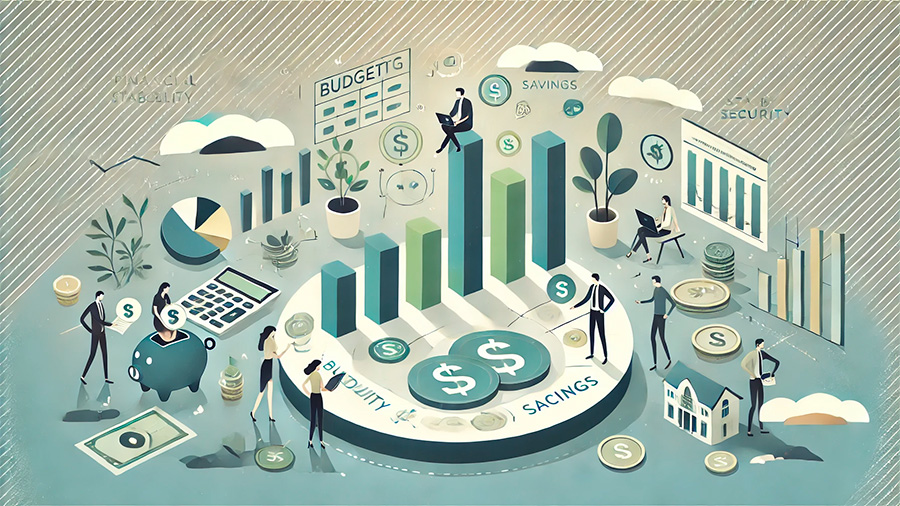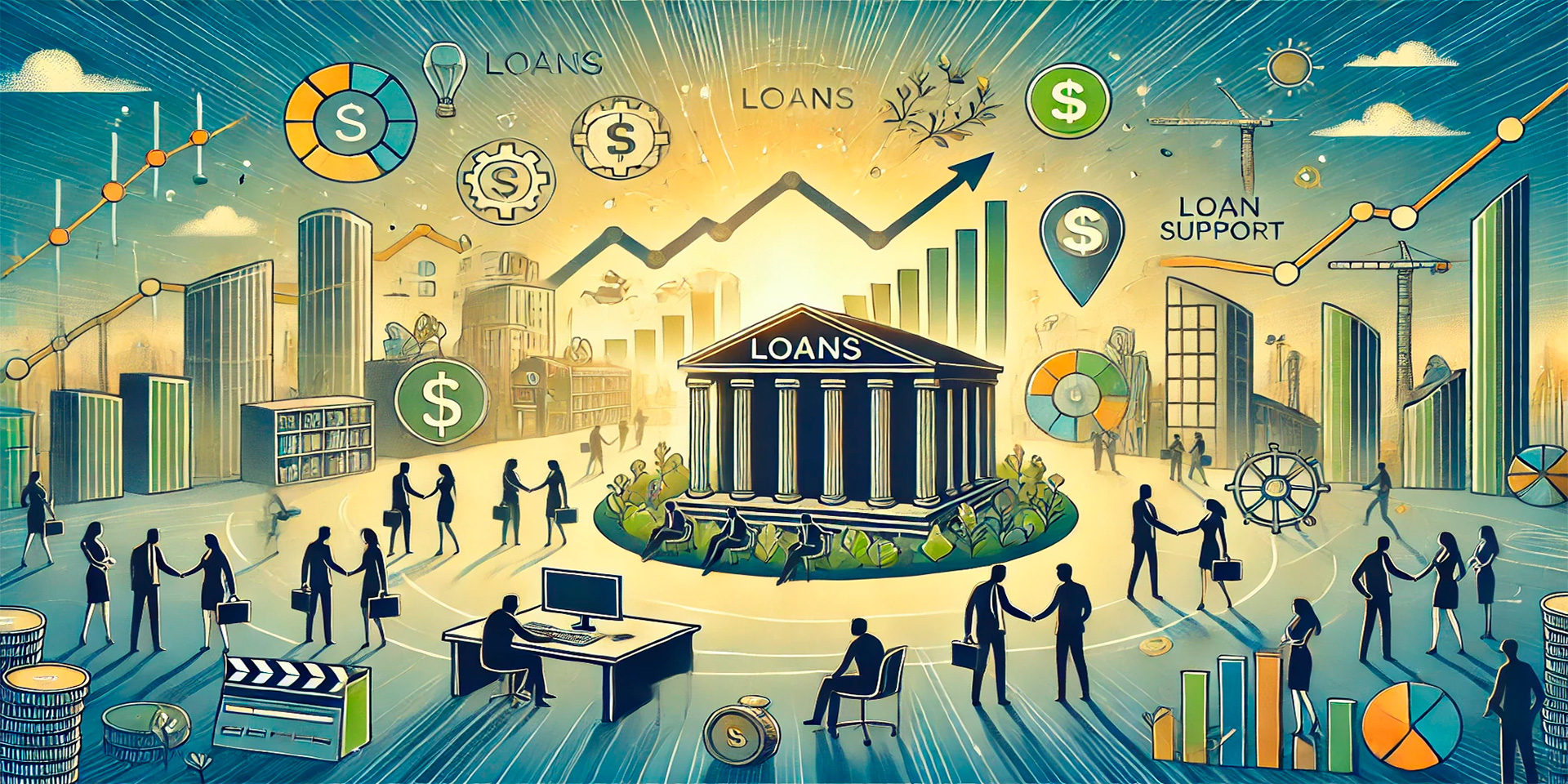In times of economic uncertainty, loans play a crucial role in providing businesses and individuals with the financial support they need to stay afloat. Whether facing a recession, industry downturn, or unexpected financial crisis, access to credit can offer much-needed stability and flexibility. Loans allow businesses to maintain operations, pay employees, and invest in growth, while individuals can rely on loans to manage personal expenses and avoid financial hardships.
By leveraging loans effectively, both businesses and individuals can navigate challenging times more confidently, ensuring that they remain resilient during periods of economic volatility.
Supporting Business Continuity
For businesses, loans serve as a vital resource for maintaining continuity during economic downturns. When revenues decline, many businesses struggle to cover their operating costs, including payroll, rent, and utilities. This is where loans become indispensable, offering a temporary financial cushion that allows companies to weather the storm without making drastic cuts to staff or services.
Loans also provide businesses with the capital they need to continue investing in long-term growth. Rather than halting expansion plans or scaling back operations, businesses can use loans to fund new projects, purchase equipment, or explore new markets, even when cash flow is limited. This proactive approach helps businesses stay competitive, positioning them for recovery when economic conditions improve.
For example, during the COVID-19 pandemic, government-backed loan programs such as the Paycheck Protection Program (PPP) in the U.S. helped businesses retain employees and keep operations running. Without these loans, many companies would have been forced to close their doors permanently.

Maintaining Personal Financial Stability
Loans also play a key role in helping individuals manage their personal finances during challenging times. Whether dealing with job loss, medical expenses, or other unexpected costs, loans provide individuals with the ability to cover essential expenses without depleting their savings. Personal loans, home equity loans, and lines of credit are common tools that individuals can use to navigate financial difficulties.
One of the primary benefits of personal loans is their flexibility. Unlike mortgages or auto loans, which are tied to specific assets, personal loans can be used for a variety of purposes, from paying off high-interest debt to covering medical bills or home repairs. This versatility makes them an attractive option for individuals facing financial uncertainty.
Additionally, access to low-interest loans or deferred payment plans can help individuals avoid falling behind on their bills or accruing costly penalties. By taking out a loan to manage their immediate financial needs, individuals can protect their credit score and avoid the long-term consequences of missed payments or default.
Boosting Economic Confidence
During periods of economic instability, loans can also boost confidence within the broader economy. When businesses and individuals have access to credit, they are more likely to spend, invest, and contribute to overall economic activity. This increased flow of capital helps stabilize the economy, mitigating the effects of a downturn and speeding up the recovery process.
For governments and central banks, ensuring that loans remain accessible during economic downturns is a key policy objective. By keeping interest rates low and implementing stimulus programs that encourage lending, policymakers aim to support businesses and consumers, prevent economic contraction, and sustain economic momentum.
For example, during the 2008 financial crisis, central banks around the world lowered interest rates and introduced quantitative easing measures to encourage lending. These policies helped to restore confidence in the financial system, ensuring that businesses and individuals had access to the credit needed to rebuild and recover.

Fueling Innovation and Adaptation
In challenging times, loans also serve as a catalyst for innovation and adaptation. Businesses that are able to secure financing can invest in new technologies, develop new products, or pivot their operations to meet changing market demands. This flexibility is crucial for companies that want to remain competitive in a rapidly changing economic landscape.
For example, many companies used loans during the pandemic to transition to digital platforms, adopt e-commerce models, or develop new revenue streams. By investing in these changes, businesses were able to not only survive the downturn but also position themselves for long-term success in the post-pandemic world.
Similarly, individuals who have access to loans can invest in education, training, or career development, allowing them to pivot to new opportunities or industries that are thriving despite broader economic challenges.
Managing Debt and Avoiding Financial Distress
One of the key challenges during economic downturns is managing existing debt. For businesses and individuals alike, loan repayments can become more difficult as revenues or income decline. However, loans can also provide a solution to this problem by allowing borrowers to consolidate debt, restructure repayment terms, or secure lower interest rates.
For businesses, refinancing loans or negotiating more favorable repayment terms can free up cash flow, making it easier to manage operations during tough times. Similarly, individuals can use debt consolidation loans to streamline their payments and reduce the overall cost of borrowing. These strategies not only alleviate immediate financial pressures but also reduce the risk of default or bankruptcy.
Government programs, such as loan deferrals or interest-free loans, can also provide relief during times of crisis. By offering temporary payment relief, these programs help businesses and individuals avoid financial distress, giving them the breathing room they need to recover.
Conclusion
Loans are a powerful tool for driving economic stability in challenging times, providing businesses and individuals with the financial flexibility to manage uncertainty, maintain operations, and invest in long-term growth. By ensuring access to affordable credit, loans can help stabilize economies, fuel innovation, and boost confidence during periods of economic downturn. With careful planning and strategic use of loans, businesses and individuals can weather financial storms and emerge stronger on the other side.







